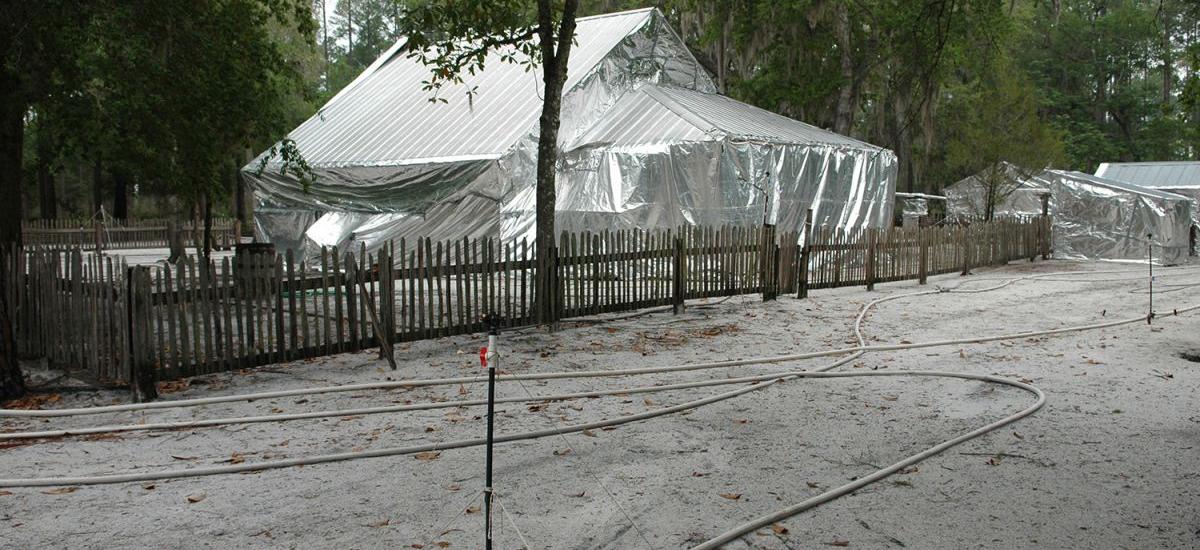
Overview
Examine the increasing threats and challenges that cultural resources face from environmental changes. Learn how to use the risk assessment process to evaluate, prioritize, and plan for continued sustainability. Discuss management goals, redundancy systems, and mitigation strategies. Consider ways to build strategic partnerships to help integrate cultural resources into local and regional planning. Explore the resiliency-planning process through case studies and during group exercises.
Faculty
Lisa Craig, president and principal planner, The Craig Group Partners; experience in historic preservation programs, disaster preparedness, resilience planning, and cultural resource management to support partnerships with local/state government, nonprofit organizations, property owners, and private sector firms
and
Angela Schedel, Ph.D., vice president and director of Coastal Programs, HDR; licensed professional engineer; retired Naval aviator; board member, Florida Shore & Beach Preservation Association; CAMP trainer, National Association of Preservation Commissions; specializes in vulnerability assessments, climate adaptation recommendations, and coastal resilience planning for National Historic Landmark communities
Evaluation Comments
"Provided a concise 'clearinghouse' for relevant and pertinent info!"
"The variety of strategies and approaches was excellent."
"Both instructors were great and knowledgeable at giving complicated presentation topics."
"Very practical considerations and plentiful examples."
Participants
Project managers at federal, state, and local agencies, tribes, SHPOs, DOTs, and nonprofits working with cultural resources and consultants to these organizations
Related Trainings
ArcGIS for Cultural Resources SERIES: An Introduction
ArcGIS for Cultural Resources SERIES: Advanced Techniques
Cultural and Natural Resources: An Integrated Management Strategy
Cultural Landscapes: An Introduction
Cultural Landscapes: Advanced Tools for Managing Change
Cultural Landscapes: An Overview
Historic Property Management
Locations and Dates
- Honolulu, HI
August 27-28, 2024
in cooperation with the Historic Preservation Program, University of Hawaii
Cost
$900 2 days / in-person seminar registration
$300 2 days / in-person seminar registration for full-time student; identification must be submitted at time of pre-registration
NPI scholarship application, click here
Registration
Pre-registration is required and recommended at least 8 weeks prior to in-person seminars to avoid cancellations due to low enrollment. No payment information is required to pre-register.
To pre-register, click here.
Registration will open to pre-registered participants 8 weeks prior to the seminar. NPI will email a link to the registration page and pre-registered places will be held until 4 weeks prior to the seminar. Payment information is required to register.
Seminar access is limited to the participant registered and enrolled in the seminar.
Cancellations must be received 4 weeks prior to the seminar; registrations are refundable less any fees charged to NPI. A rescheduling fee may be applied to later, non-refundable cancellations. Participants receive a full refund if the seminar is cancelled by NPI. NPI reserves the right to substitute an instructor if necessary and will notify participants whenever possible.
How to register once you have received the registration link:
• Create/access a participant account at https://training.npi.org
• Secure a place with one of the following payment options:
• Credit/debit card or PayPal payment [using PayPal credit card processing] from participant account [https://training.npi.org]
• Credit/debit card [contact NPI to use an alternative credit card processor]
• Training voucher/purchase order [email to info@npi.org]
• Check payable to "National Preservation Institute" [mail to NPI, P.O. Box 1702, Alexandria, VA 22313]
• ACH transfer [contact NPI for details]
Seminar Location, Hours, and Hotels
Information on seminar location, hours, and conveniently located hotels is available online to registered participants. Seminars generally are held from 9 a.m. to 5 p.m.
Certificates of Attendance
Certificates of attendance are available online upon completion of training. Instructions for receiving certificates are included in the NPI Welcome Letter, available to participants once they are registered online. A certificate for a one-day seminar provides 6 training hours, a two-day seminar provides 12 training hours, and a three-day seminar provides 18 training hours.
Customized Training
NPI offers customized training to meet specific organizational needs at a location and time convenient for the sponsor. In-person seminars, online, on-demand courses, and/or webinars may be based on current NPI offerings or new preservation-related training may be developed.
Questions?
Contact NPI at 703.765.0100 or info@npi.org.
